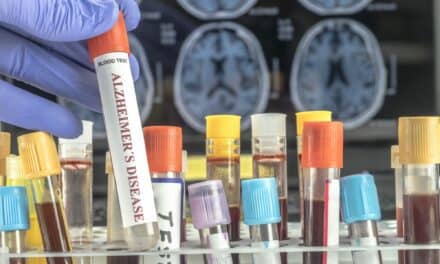A Rutgers research director outlines clinical applications and limitations of the new diagnostic tool while highlighting the need for specialist interpretation.
Researchers at Rutgers Robert Wood Johnson Medical School have validated the Lumipulse blood test, the first US Food and Drug Administration-cleared blood test for Alzheimer’s disease diagnosis, while cautioning that proper clinical interpretation remains essential for effective implementation.
William Hu, MD, director for Center for Healthy Aging Research and chief of cognitive neurology and Alzheimer’s disease at Rutgers, says the test represents a significant advancement in accessibility but requires careful application in clinical settings.
“The obvious impact is faster, easier, and more readily available detection of Alzheimer’s disease. However, like all tests, this and other tests continue to have important caveats,” reads a release from Rutgers Robert Wood Johnson Medical School.
Clinical Applications and Limitations
The validation work highlights both the potential and constraints of blood-based Alzheimer’s testing. Hu notes that the FDA-cleared test is often ordered alongside other Alzheimer’s blood tests, which may provide conflicting results.
“We do not recommend these blood tests be ordered by people who are concerned about their own future Alzheimer’s risks, nor by physicians who are not familiar with these caveats when using and interpreting these tests,” the release reads.
The test shows particular utility in population-level assessments and specific clinical scenarios, according to Wu. Currently, it is most effective for identifying the approximate proportion of groups with increased Alzheimer’s risks or confirming the disease in patients with severe cognitive impairment who cannot undergo more extensive testing.
Addressing Diagnostic Challenges
The validation work addresses a critical clinical need, as misdiagnosis rates for dementia causes reach approximately 30% in specialty memory clinics. Hu explains that while dementia serves as an umbrella term for cognitive decline affecting independent living, Alzheimer’s disease represents just one cause among several distinct conditions.
“The symptoms of dementia give physicians some clue on what the underlying cause may be, but the overlap in symptoms between distinct diseases is great,” reads the release.
The distinction has gained importance with the emergence of new therapies specifically targeting Alzheimer’s disease by removing amyloid in the brain. These treatments will not be effective in patients without Alzheimer’s-specific brain changes, making accurate diagnosis essential.
Hu’s team continues research into preventive approaches, including studies on combined social and cognitive activities and gut microbiome influences on brain health, which may inform future biomarker development.
Photo caption: William Hu, MD, director for Center for Healthy Aging Research and chief of cognitive neurology and Alzheimer’s disease at Rutgers
Photo credit: Rutgers Robert Wood Johnson Medical School





